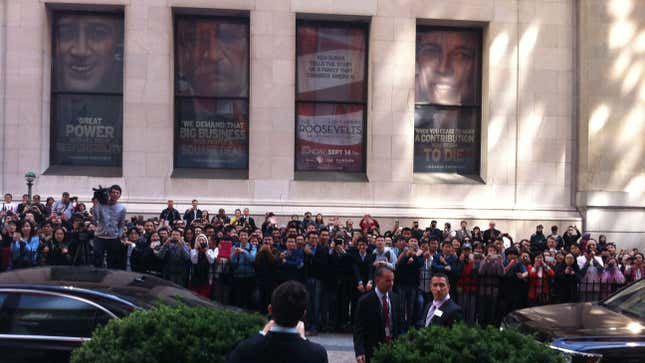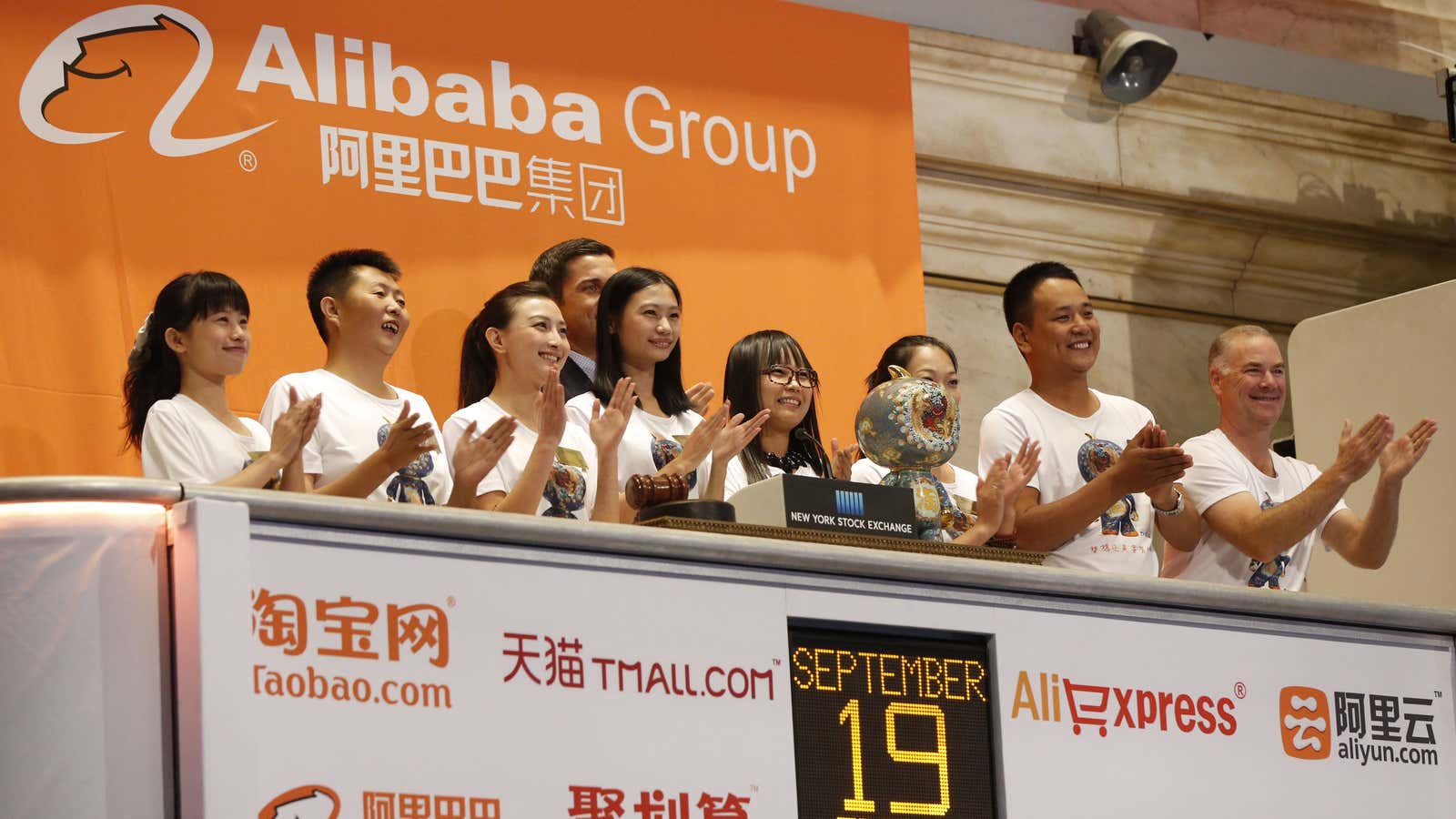It was clear to reporters, traders, and Alibaba fans who gathered at the New York Stock Exchange this morning that the e-commerce giant’s public listing was a unique moment in time, signifying something huge.
But what?
The event was enough of a milestone that a hundred or so (mostly) Chinese people stood for several hours outside NYSE, awaiting the chance to celebrate the company’s listing and glimpse Jack Ma, Alibaba’s charismatic chairman. ”It’s so momentous! It’s so momentous!” said a young Chinese woman deep in the crowd, who answered the question in Chinese mid-jump before vanishing back into the crowd.

Like the young woman, most of the crowd was made up of 20-something students. Several Quartz spoke with had made the trip from nearby states.
“It’s unprecedented,” said Jacky Lai, a Chinese student at Worcester State University in Massachusetts. “Jack Ma and Alibaba embody China’s dream,” he added, speaking Chinese (though notably, he didn’t use the same phrase as “the Chinese dream” touted by Chinese president Xi Jinping).
But it wasn’t all about the cult of Jack Ma.
“Alibaba represents China’s strength,” said a 40-something man who was in New York on business and spoke in Chinese (he declined to tell Quartz his surname or where in China he lived). “We are very proud,” he added in English. I asked the few-dozen people in earshot whether they agreed that Alibaba represented China’s strength: The roar of assent appeared unanimous.
The American traders fielding reporters’ questions from the stock exchange floor seemed similarly awed, but for different reasons. Several noted that it was the biggest IPO the stock exchange had seen.
“It means that you have the e-commerce leader in China listing on the NYSE, which to me is a huge event,”said Peter Costa, president of Empire Executions. Floor trader Kenny Polcari agreed: ”Certainly it’s a great day for the Chinese in general, that they can come to an iconic place and participate in our capital markets.”
While we waited for the opening price to set, a Beijing-based tech reporter marveled that non-Chinese could understand the significance of Alibaba’s IPO at all, given how little the Western press seems to understand the company. Then again, she said, she also didn’t think the IPO was that big a deal.
“As a reporter who covers lots of IPOs, I don’t see this as a symbol that China is big and strong,” said the reporter, who spoke on condition of anonymity. Chinese people already know that Alibaba is one of the country’s top-three internet firms, she said, so its explosive IPO wasn’t exactly surprising.
Whatever its symbolic weight, Alibaba’s IPO has changed the company’s priorities, said Junheng Li, an analyst at JL Warren Capital.
“Because of its mega-market cap of nearly $230 billion—bigger than Facebook—it is inevitably vulnerable to broader market volatility,” said Li.
It’s still a Chinese company whose money is earned mainly in China, she said. But its shareholders are now primarily Americans who demand the highest standards of corporate governance and minority shareholder protection—which could call for an adjustment of Jack Ma’s famous managerial style.
